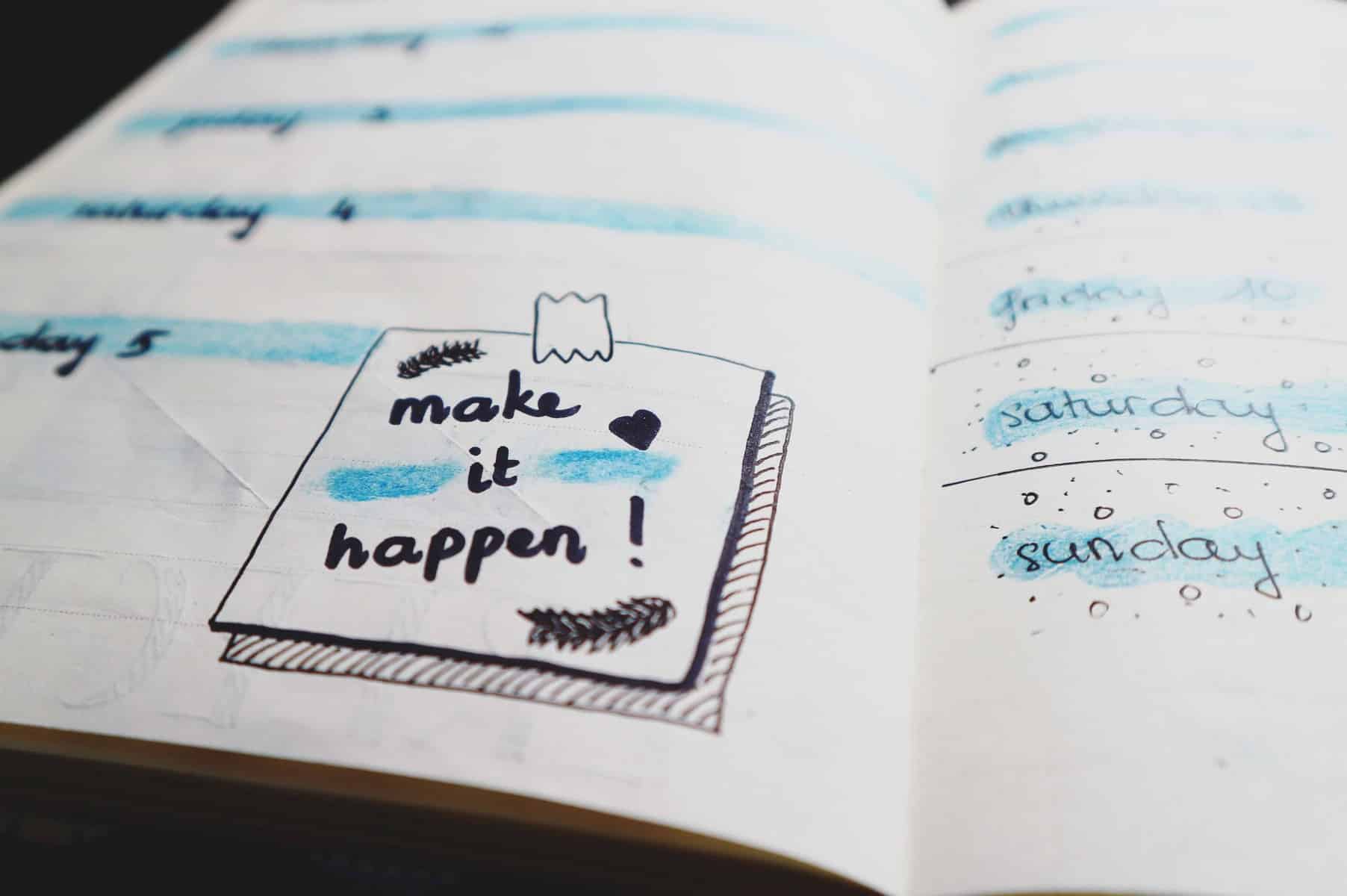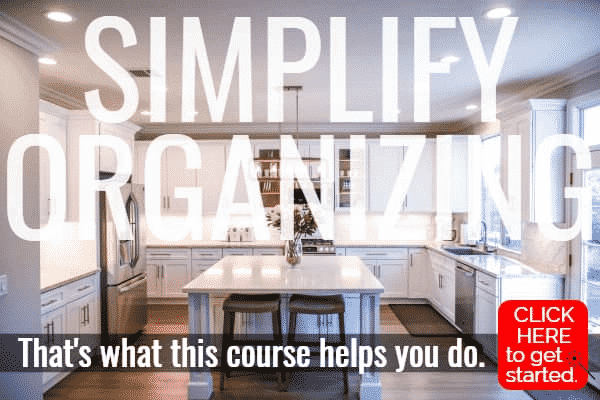DECLUTTER. Decluttering our households can be overwhelming and difficult, but it is possible.
The pandemic has forced many of us to stay inside our homes. We don’t really have much choice if we want to keep healthy and safe. However, this leaves us with a lot of free time. One way of making the most of that free time is throwing away unnecessary stuff: single-used garbage, rarely-used possessions, and things that were already old and forgotten.
Saying that we will transform the house into a sparkling clean and organized haven just because we are home is easier said than done. For one, the pandemic has caused so much stress and anxiety in our minds. We are more overwhelmed than really raring to go. So, how do you start de-cluttering, when you don’t know where to start? I highly recommend you to get started here…
Easy to implement strategies that’ll teach how to organize home your home with minimal effort! – Find out here!
12 Simple Tips To Make Your House Squeaky Clean

In this article, we will look at some of the ways for a STRESS-FREE DE-CLUTTER!
1. Set some goals
Ask yourself why you must de-clutter.
Is it because you want a tidier space? Do you want to transform your home into a classy area, which should impress other people? Moreover, do you want to lessen the costs of doing all these – by doing them on your own?
Whatever it is, remember it and use it as an inspiration before, during, and after de-cluttering sessions!
That’ll give you the push to get going!
2. Start with trash

Have you ever cried while surveying all the stuff that needs sorting out during a cleanup? When that happens, I usually feel overwhelmed.
When something throws you for a loop like that, you need to work on a systematic process. You start by throwing your trash. Some items obviously should not be hoarded, such as plastic wrappers, empty bottles, and broken furniture. Place all of them in a trash bag or box. Make sure that there are no sharp corners if you are using plastic because you will end up with quite a mess. Empty sacks are great options, though.
When you make this a routine, you will barely notice it in the future. You know that you do need to get rid of your trash no matter what.
3. Schedule a cleaning day (or cleaning hour)

Sometimes, you might feel like you don’t want to do a massive “general cleaning” project as of the moment.
What you can do is to allow a day for cleaning every month. This way, that cleanup day becomes a mental fixture. So, you accept it as part of your schedule. You can also prepare for the day by getting hold of necessary materials, such as boxes and trash bags.
It does not have to be the whole day. If you are regularly cleaning, then you won’t get swamped with trash and things to tidy. You can perhaps set an hour for quick cleaning, such as at 10 am on a Saturday or a Sunday, if you work from home during the weekdays.
4. Make a checklist of that needless stuff
After all the evident trash is out, you have to get rid of items that you no longer use or need. Make a checklist to guide you. You can use that list to warn your housemates or family members about what you are planning to do.
Old toys, figurines, plastic bags, clothes, and more can be taken out. Depending on their condition, you can give some away to charity. The broken, battered, and stained ones can go with the rest of the trash, though.
If you can’t think of anything, you can ask other people inside your home for their suggestions or browse the internet for “decluttering lists.”
5. Prepare a “Maybe Box”

Some call it a “maybe box,” others call it “second-pile container.”
Whatever it is called, prepare a container for all the things you think you don’t need now but might need in the future. Pack these items in hidden storage boxes, which could be easily stowed away under the bed or in the attic or a basement.
Afterward, set a specific period for you to use the items inside. If, after that time, and some aren’t used, chances are you don’t need those again, and it’s time to say goodbye.
For example, some seasonal items can be stowed away for the time being. They can be reused when the particular season arrives.
6. Get rid of those you don’t need, not those you don’t want!
For others, de-cluttering on a tight budget is challenging.
Personally, I came from a middle-income family, so we usually keep a lot of things that might be used in the future.
We don’t throw clothes if they do not fit anymore, as they are usually passed down to my little siblings. We prefer to get our things repaired or get hold of pre-loved items rather than buy new stuff. We also keep duplicates, just in case.
My parents would always ask if we would need an item again before we could decide to throw them out. Furthermore, we sometimes have to keep things we do not want or do not need at that particular moment. De-cluttering doesn’t mean that your house should have minimal things. For me, it is done to keep only the things you need.
But, today I have a win-win solution for you. You can now make money selling unwanted stuff. Yes, you heard me right! Read along to find out more…
Decluttr app specializes in buying used CDs, DVDs, Blu-rays and games to help clients make room and money. Enter your items’ barcodes into the site’s valuation engine and get an instant offer. In addition, Decluttr features an app that allows you to also scan items through their smartphones. So, start selling today with Decluttr today…
<style=”font-size: 18pt;”>7. Invite Some Help Or Simply Get This
Decluttering with others not only helps ease your uncertainty, but it can also serve as your ‘bonding time’ with the people you care and love. Whenever you feel anxious or sentimental, help from someone who values cleanliness can help — whether it is your mother, special someone, or best friend. Additionally, you can also ask a hand from your housemates or roommates. Sharing the same space should also mean wanting to tidy that same place.
Needless to mention, machines are more likely to out-perform especially when you are overwhelmed. If you are like me, and enjoy spending time with friends and family, then I have the best solution for you..
The iRobot Roomba 960 Robot vacuum seamlessly navigates room to room to clean an entire level of your home, recharging and resuming until the job is done. The Roomba 960 isn’t cheap, but you get your money’s worth, it leaves your floors spotless, and definitely exceed your expectations .
8. Think in others’ perspectives
Have you ever felt humiliated in front of your peers because of a messy house? I hope not.
That’s why when cleaning, don’t forget to shift your perspective from “I’m used to this look” mode to “Would a visitor feel comfy in it” mode.
Just as you don’t want to stay in others’ messy houses, remember that others don’t want the same thing, too.
9. Clean while doing other things
De-cluttering shouldn’t be boring! So, spice it up by doing it simultaneously with your hobby.
You can pop up the speaker and play your Spotify playlist, pick up some trash while watching your favorite K-Drama on Netflix, or sort while laughing with the sitcom you loved on TV.
10. Focus on a spot
Another thing that overwhelms us is thinking about the large space we must tackle. So, you need to be systematic with that, too. You need to pick one area at a time.
Because if you’ll keep on thinking and thinking about how big it is, you will be more anxious. Start doing something, and you will feel better. Anticipating an action is worse than actually doing it.
You might want to clean your living room table first or the things stuck under your bed or the dusty items that you don’t use in the attic or basement. Wherever it is, a single spot goes a long way.
11. Give away your possessions or sell them to shops
They say that it’s better to give than to receive, and it’s absolutely right!
A 2006 study revealed that giving indeed brings us some good vibes!
One way to lessen your anxiety and ‘decluttering guilt’ is to donate some stuff, especially clothes, that you don’t need to the poor and to charities. If you want to earn some bucks, you can sell those products in second-hand shops or flea markets.
Instead of feeling anxious about whether to give up the things you once loved, look forward to the joy that others will feel with your items or the money that you earned while also being free from junk.
12. Don’t rush and take a rest
Don’t push yourself to the limits and take a few breaths once in a while. Decluttering isn’t even a race. So take your time. As long as your goal is still in your sight — to make your space a clutter-free one, you should be fine.
Frequently Asked Question (FAQs)
1. Is a messy home a sign of mental illness?
This depends on your personality.
In an interview, Weena Cullins, a marriage and family therapist, said that people who are usually neat but suddenly turned messy might be undergoing depression. These people typically don’t have the energy and concentration that it takes to do things like cleaning.
People diagnosed with other mental illnesses like dementia and schizophrenia are also seen with this indication. However, if the person is already unorganized from the beginning, then chances are they might prioritize things over cleanliness.
2. Is the inability to let go of things a sign of mental illness?
There exists an illness wherein a person collects several variations of the same item and then finds it challenging to let them go. He feels that the items must be “saved,” even if they have created piles of mess in his home.
This is called Hoarding Disorder, and anyone who has it does not see it as a problem, so medical intervention is required before accidents occur.
Conversely, excessive cleaning can also be a sign of Compulsive Decluttering.
However, like any other illness, only medical professionals are allowed to diagnose and cure these conditions.
3. Can a messy environment trigger medical conditions?
According to psychologist Dr. Esslin Terrighena, clutter makes us frustrated about its presence, but not knowing how to discard them and the uncertainty about its future use makes us more helpless and disappointed.
UCLA’s Centre of Everyday Lives and Families (CELF) also found that cortisol (stress hormones) levels rise with women enclosed with too many objects.
Continued exposure to this situation can lead to anxiety and depression.
Additionally, the mess in houses can cause other conditions like respiratory ailments or wounds and punctures. Leaving them uncleaned can also harbor bacteria and viruses, which can, in turn, cause diseases.
4. Difference between Clutter and Disorganization
Take note that clutter is different from disorganization. While clutters are the things that are not needed anymore, disorganized items are on a different level.
Home organization requires skills in looking at every angle and corner of your house, scrutinizing every single bit of object in there, and evaluating their purpose.
If you need some next-level help for a next-level house problem, try The Organized Home Course by Hilary of PullingCurls.com.
With The Organized Home Course, you’ll never have a cluttered and disorganized home anymore, you’ll never lose any document anymore, and you’ll finally feel at ease in your own homes.
The course includes a 100% online set-up, especially nowadays, that stay-at-home measures forbid us from going out. The approach is tried and tested by people all around the world. (Just see how many testimonials are there on their website!)
The package also comes with a helpful email series and participation in a specialized forum group, so you can catch every tidbit of tips and details that you need to know from Hilary and other people like you.

Howdy Folks, thanks for stopping by my blog.
I’m Swati, a proud mom, dedicated side hustler, full-time blogger, and a recognized millennial work-at-home expert. My expertise has been featured on esteemed platforms such as Forbes, CEO Blog Nation, Referral Rock, Vital Dollar, Databox blog, and many more. I have embarked on this incredible journey to share my firsthand experiences in the world of online income generation and to assist all of you in earning money from the comfort of your homes.
Join me in my mission to revolutionize the way we make money and achieve financial freedom. Trust me, it’s not as challenging as it may seem!
Together, let’s explore the boundless opportunities and pave our paths towards a prosperous future.



